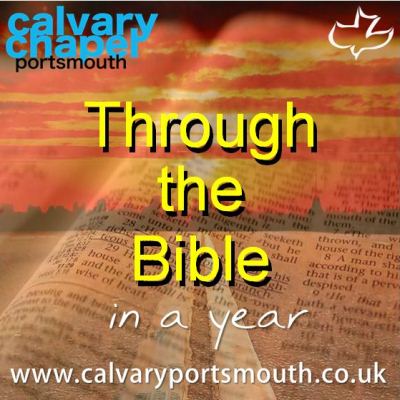This study through the minor prophets, taught by Pastor Barry Forder, is the 30th session of 48 in our ‘Through-the-Bible-in-a-Year’ series recorded during 2014 as part of our Sunday morning family services.
In this session, Pastor Barry gives an overview of Jonah, Micah, Nahum and Habakkuk.
As most are aware, Jonah was called to speak to the people of the great Assyrian city of Nineveh. At first he decided he didn’t want the assignment, until God explained it to him a little more clearly (with the help of a great fish!). Note: you cannot run away from God! As has been said: “You cannot say ‘No Lord’, and mean both words; one annuls the other. If you say no to Him, then He is not your Lord”.
Micah spoke to Israel of God’s coming judgment, largely on account of their oppression of the poor in the land, and then contrasted this with the way it will be when the Messiah reigns. Yet there is no gloating from Micah, as we see him lamenting over his nation, before concluding with the hope of restoration.
Nahum foretold the judgment of Nineveh. Even though they had repented at the preaching of Jonah, they had retuned to their ungodly and idolatrous ways, God is not mocked.
Habakkuk’s complaint in the opening verses is ‘why do the unrighteous prosper in Israel?’ God explains that it is because of this that he will cause the Babylonian’s to come to bring judgment! Habakkuk questions God’s plan and God then allows Habakkuk to see just how sin looks from His perspective!
These four books help us to see as God sees. Sin is abhorrent to a holy God. A price must be paid, and that price is death. Back in the Garden of Eden God established the rules, if you sin the punishment is death. But there is hope! For if one could be found who was willing to die in your place, God’s justice would be satisfied. But who would be willing to pay for your sin? Who would be actually worthy to do it, for they themselves would have to be without sin?
May this overview prompt you to undertake your own study of these divinely inspired books.
The PDF slides are from the PowerPoint presentation used during the teaching session.
You can listen to the audio on this web page, or save it for later listening.


